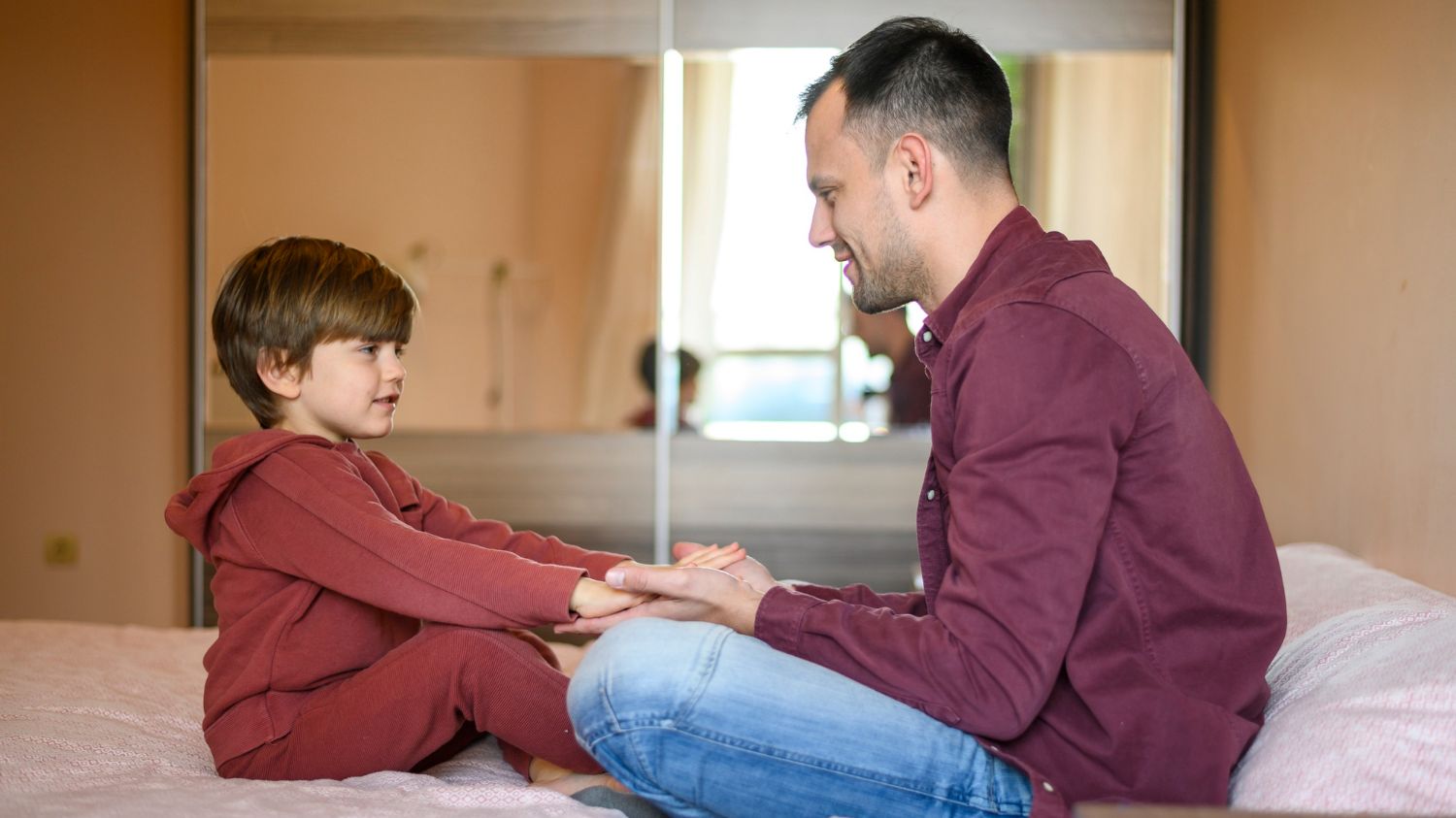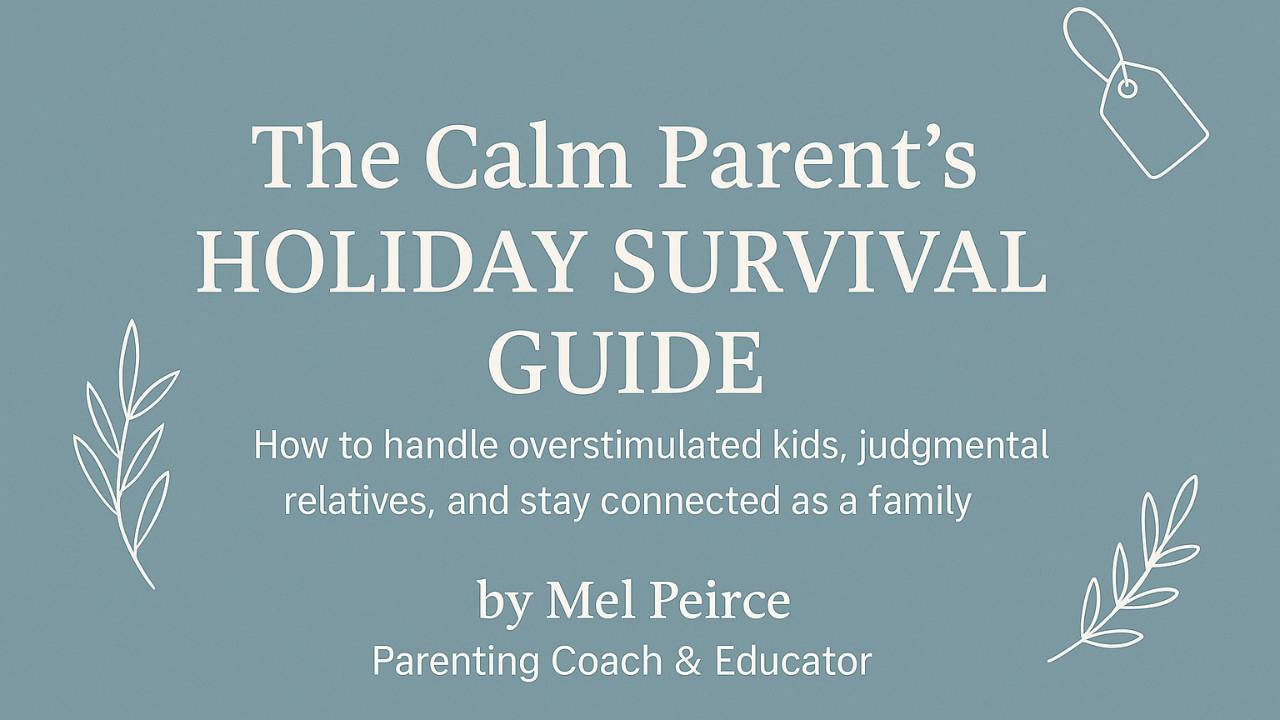How To Help Your Child Develop Coping Skills
Feb 05, 2023
Do you know any adults that lose it easily or really struggle emotionally when they are faced with challenges? I don’t know about you but I’ve met my fair share! Knowing what I know now, I do my best to be empathetic because chances are high that they simply weren’t taught how to cope as children.
This is an area that I work on with parents often because it’s common for children to react when things don’t go their way. The ability to address and deal with problems and difficulties is a skill that has to be learned, and it’s important because if you don’t learn coping skills as a child you will really struggle as an adult.
So how do you help your child develop coping skills? This is a big topic but I’m going to summarize it to the top 3 things you can start doing to help.
1 - Meet your kids where they are.
When our kids struggle and react when things don’t go their way it can be very frustrating for us as parents, but think about how you parent from frustration. Most parents tell me they’re short-tempered and reactive, and they might snap or yell — which is us not handling it well when things don’t go our way. Kind of ironic, right?
The alternative is to meet your kids where they are and accept their current emotional skill level.
Consider that it’s okay for them to feel frustrated. They haven’t learned how to cope with things not going their way, so of course they’re reacting adversely.
When you keep in mind that coping is a skill that children have to develop — and you change how you are thinking about and approaching the situation — it will change how effectively you are able to parent through it.
2 - Be The Mirror.
Emotions are contagious, and the person that is most connected to their emotions will have the most influence. Unfortunately, when a child is not coping well, their feelings can be BIG and they are deeply connected to them which can give them the most influence. This is why parents find their frustration and anxiety levels rising in response to their children’s heightened emotions.
But as a parent, you want to be the alpha and be the one influencing your child’s emotions. You want to be the mirror reflecting back the emotion you want in your child — so you bring them down to your level, not rise up to theirs.
Kids can’t learn when they are in a state of frustration. The key will be to help them calm down first and then talk about how they might handle it differently in the future.
3 - Get Curious, Not Furious.
Kids are more likely to learn when they come to their own conclusions than when we tell them what to do, which is why questions can be so powerful.
After the fact and once your child has calmed down, you can ask questions to help them think about how they could handle it differently next time and think about what they might do.
Here’s an example from a recent coaching session:
I was working with parents who were struggling with a 6-year-old child that was reacting and hitting both at school and at home. The parents knew their son had a good heart, but he was ending up in trouble at school and they were at a loss.
We went over the various situations and identified that their son was reacting by hitting because had not yet developed coping skills to handle situations that didn’t turn out as he wanted or expected and did not yet have the ability to express his frustration or disappointment appropriately.
Once the parents were able to view the behavior through the lens of missing skills, they were able to meet him where he was with empathy. The empathy helped them “be the mirror” from a place of neutrality instead of frustration.
Finally, when they got curious instead of furious, they were able to have a discussion and ask questions to help their son work on developing coping skills.
Here is how that conversation might have played out:
I hear that you got really frustrated when everyone else didn’t want to play the game that you wanted to play.
Then you wait and give your child a chance to talk and tell you what happened from their perspective.
You might add:
Hmmmm… that didn’t seem to work out so well.
Again, wait and give them another chance to talk.
This is the key question you want to ask:
This is the key question you want to ask:
What do you think you could say next time something like this happens?
In this case, I recommended that the parents give their son the words and help him practice exactly what he might say next time this came up on the playground.
Finally, you can add:
I also know you know that hitting hurts.
What can you do to try to make things right with your friend?
This process helps kids to reflect back on what they’ve done, work to make things right, and think about how they could address the problem differently next time. This is how we help our kids develop the habit of thinking about solutions and help them develop the coping skills they need to address the problems and difficulties that will come up in their lives.
If you’ve been struggling with challenges with your kids and can’t imagine how it would even be possible calmly “be the mirror”, please know that you are not alone and know that help and support are available. Schedule a free call here, to learn more about all of the different resources available and how I can help.
Join the Confident Parenting Community.
Receive the latest tips and tools from the Confident Parenting Toolbox to support your kids
(and yourself!) with today's challenges so your whole family can thrive.
We hate SPAM. We will never sell your information, for any reason.


